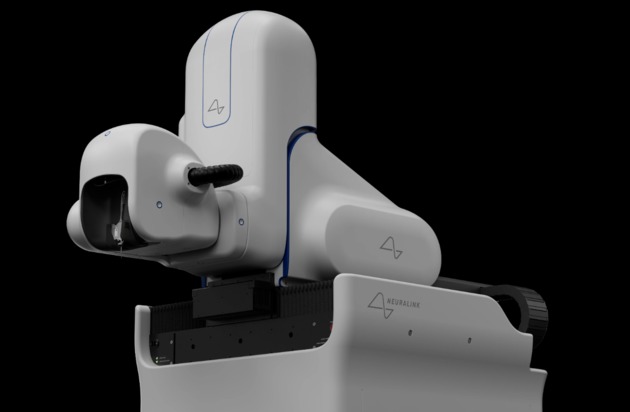
Photo/Neuralink
NO.1 Neuralink’s First Human Brain-Computer Interface Surgery Faces Device Issues
Neuralink has announced that after conducting its first human surgery in January this year, the device implanted in the patient experienced a series of mechanical failures. According to the company, within weeks after the surgery, some electrode threads installed in the brain tissue came loose, causing the device to malfunction and reducing the amount of data captured from the patient’s brain. The company claims to have fixed the electrode wire issue by modifying the recording algorithm to make it more sensitive to neural cluster signals.
Commentary: The device issues with Neuralink highlight the challenges of brain-computer interface technology and represent a significant learning opportunity for the industry.
NO.2 Sundar Pichai: Smartphones Will Be the Core Platform for AI Innovation
Google CEO Sundar Pichai recently stated in an interview that the AI technology revolution is still in its early stages. With the rapid development of generative AI, large language models are beginning to feel the depletion of internet information resources. Pichai predicts that these models will likely turn to data created by AI for training to sustain their evolution. He believes that smartphones will be the core platform for AI innovation, with wearable devices like glasses also becoming important carriers.
Commentary: Pichai’s views emphasize the central role of mobile devices in AI development, indicating a new direction for hardware innovation.
NO.3 Mistral AI Raising New Funding Round
According to media reports, French AI startup Mistral AI is about to secure a funding round of approximately $600 million. This funding is expected to value the company at $6 billion. Participants in this round include existing investors General Catalyst and Lightspeed Venture Partners. Founded by former DeepMind and Meta researchers and not yet a year old, Mistral AI has become one of the most watched AI startup unicorns with its Mistral series models.
Commentary: Mistral AI’s new funding round demonstrates high market recognition of its technology and potential, reflecting the vibrant capital activity in the AI sector.
NO.4 OpenAI Launches AI Detection Tool
OpenAI has recently launched an AI detection tool capable of identifying whether images were generated by DALL-E 3. OpenAI reports that in internal tests, the tool correctly identified images created by DALL-E 3 about 98% of the time and can handle common modifications such as compression, cropping, and saturation changes. OpenAI also plans to add tamper-proof watermarks through the tool to mark digital content such as photos or audio, which are difficult to remove.
Commentary: OpenAI’s AI detection tool is a responsible step towards generated technology, enhancing the credibility of content authenticity.
NO.5 Scientists Develop Ultra-Pure Silicon
Researchers from the University of Manchester and the University of Melbourne have recently developed ultra-pure silicon, which can be used to build high-performance quantum bit devices, a fundamental component needed to pave the way for scalable quantum computers. This research has been published in the latest issue of Nature Communications Materials and is expected to define and drive the future of quantum computing.
Commentary: This achievement brings new possibilities to quantum computing and represents a significant advancement in material science and quantum technology.
Disclaimer: The content and data in this article are for reference only and do not constitute investment advice. Please verify before using.


 川公网安备 51019002001991号
川公网安备 51019002001991号





